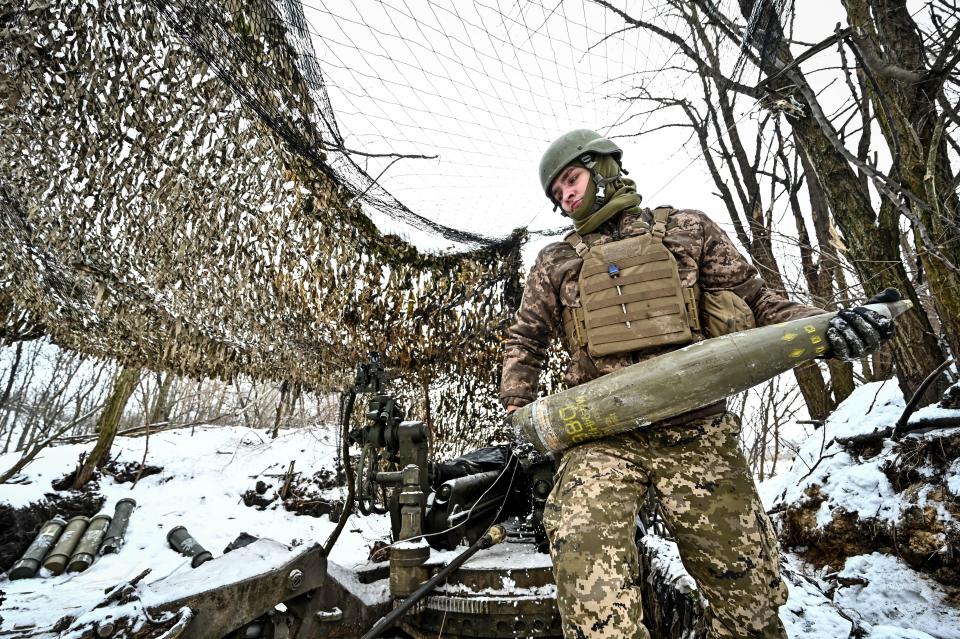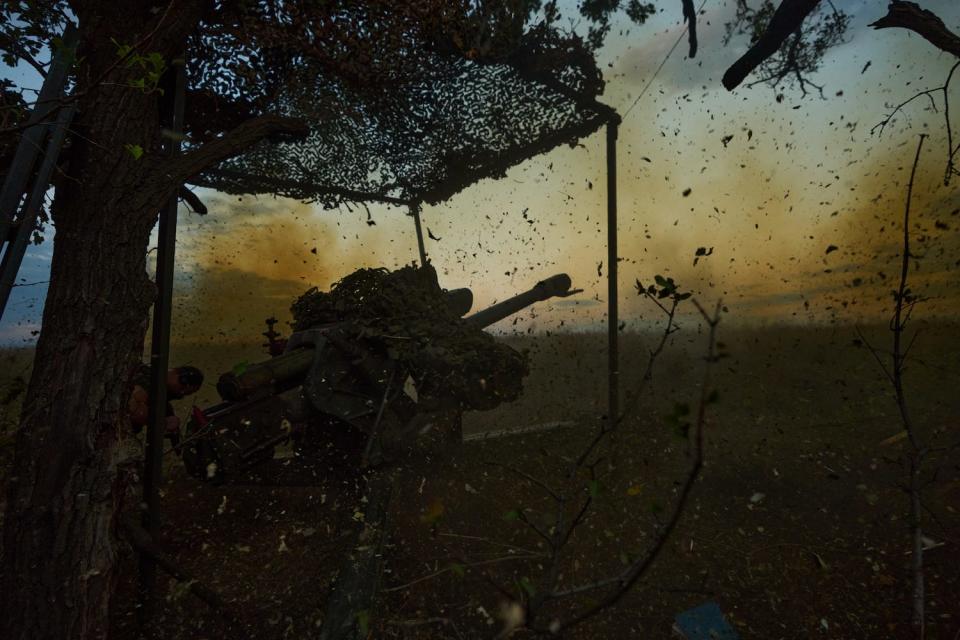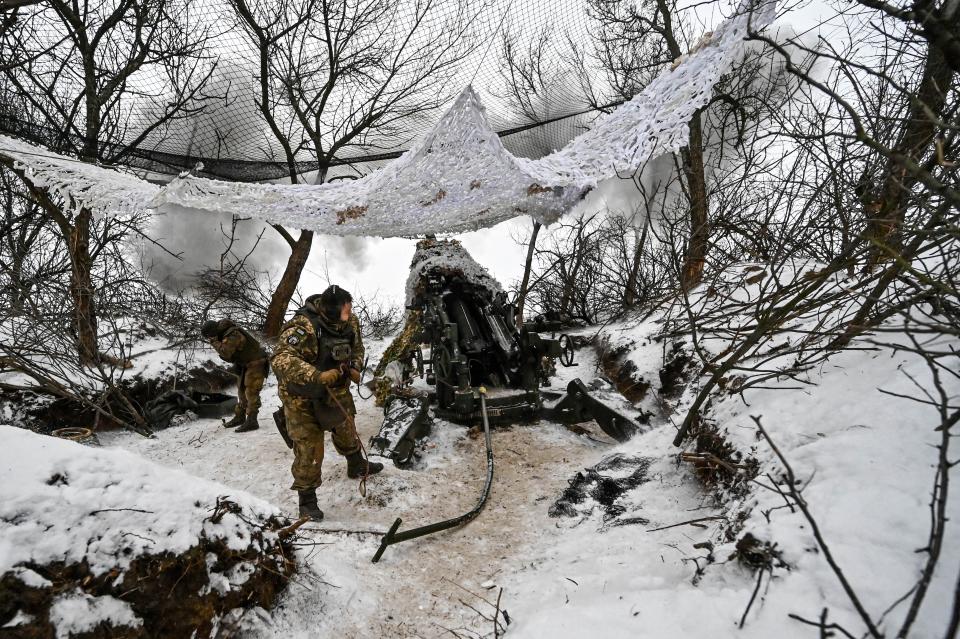Ukraine looks to be losing the 'battle for ammunition,' and its forces are being massively outshot by the Russians
NATO announced plans this week to increase its stockpile of artillery ammunition.
This comes as Ukrainian troops face shortages on the battlefield — and are outgunned by Russia.
A top Pentagon official stressed that Kyiv does not have the supplies that it needs.
Nearly two years into Russia's war against Ukraine, and it appears to have the upper hand in a key fight: the ammunition battle.
The situation is looking increasingly grim for Ukrainian soldiers, who have been hamstrung by insufficient ammunition stockpiles on the battlefield and are now being outgunned by Russia's troops. Such was not the case a few months ago, but Kyiv now faces uncertainty about future security assistance from its Western partners.
Celeste Wallander, the assistant secretary of defense for international security affairs, said this week that the Pentagon is aware of concerns shared by Ukraine's military leadership that its soldiers "do not have the stocks and the stores of ammunition that they require."

One critical ammunition type is artillery ammo. Last summer, Ukraine was firing up to 7,000 rounds a day, compared to 5,000 shells on the Russian side, according to a Monday report from The New York Times, which cited US and Western analysts.
But now, those figures seem to have flipped dramatically. Ukraine is firing just 2,000 rounds a day, while Russia is nearing 10,000 shells. The uptick for Moscow can be explained by increased domestic production and an influx of North Korean weaponry.
Ultimately, Ukraine's "ammunition challenge is rooted in increasing defense production," Wallander told reporters Tuesday. "And we have been working with allies and partners to expand their production of ammunition. So we're seeking to meet that."

There are major initiatives underway. NATO Secretary General Jens Stoltenberg on Tuesday announced new contracts worth $1.2 billion to buy around 220,000 155mm artillery shells, ammunition which hasplayed a key role in Ukraine's fight against Russia.
"This demonstrates that NATO's tried and tested structures for joint procurement are delivering," Stoltenberg told reporters of the contracts. "Russia's war in Ukraine has become a battle for ammunition, so it is important that Allies refill their own stocks, as we continue to support Ukraine."
Analysts at the Institute for the Study of War (ISW) think tank said its unclear if the NATO contracts will enable the alliance to send more ammunition to Ukraine or just fill its own stockpiles — both of which are important in the long run.

"Western security assistance remains vital for Ukraine as any slow reduction or sudden collapse of Western aid will very likely eliminate Ukraine's ability to defend itself," the analysts wrote in a Tuesday battlefield assessment.
Reductions in aid, they added, "could lead to the Russian military capturing significantly more territory in Ukraine, bringing Russian forward bases closer to the borders of NATO member states."
"The replenishment of NATO stockpiles is also an important endeavor, as ISW also continues to assess that NATO rearmament is necessary to deter — and if necessary defeat — any future Russian attack on NATO's eastern flank," the analysts said.
Efforts to boost ammunition production are not just limited to NATO, either. European Union countries are pushing to get much-needed artillery shells to Kyiv, while Ukrainian officials have also signaled a desire to increase outputs both at home and abroad.

"Every aspect of logistics needs to be expedited," Ukrainian President Volodymyr Zelenskyy stated in his nightly address to the nation earlier this month following a meeting with top military and political figures and an analysis of artillery shell availability.
"We also discussed the launch of new production lines for weapons and ammunition in Ukraine — at our enterprises and together with partners," he said.
Right now, the biggest unknown is the future of US security assistance to Ukraine; additional military funding has remained held up by Congress, despite repeated pleas of urgency from the Biden administration.

Pentagon officials have asserted that without more money, Washington can't outfit Kyiv with weapons at the same levels and pace that it has done since the early days of the war. The implications of aid drying up are incredibly high-stakes, American and Ukrainian officials warn. Some have said that the Ukrainians will lose without continued assistance.
"The continued lack of funding has forced us to pause drawing down additional items from our inventories, given the implications for our own military readiness," Pentagon Press Secretary Maj. Gen. Pat Ryder told reporters on Tuesday.
These limitations, he added, prevent "us from meeting Ukraine's most urgent battlefield needs to include things like artillery rounds, anti-tank weapons, air defense interceptors."
Read the original article on Business Insider


